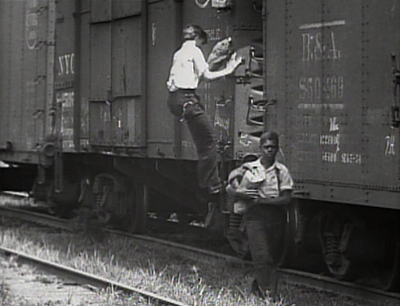 A rather outrageous hour of the night/early morning, but I can't sleep and am thinking, for some reason, about Morocco. I visited Morocco in March of 2008 with my friend Dewayne; we tramped about the country for two and a half weeks or so, staying in $10 rooms or camping in municipal campgrounds, walking ourselves ragged and bickering more than I probably care to remember. Upon our return to the States I was tired and penniless, and fell rapidly into a deep depression. I never spent much time reflecting on my visit to Morocco, and I certainly never did much writing about it.
A rather outrageous hour of the night/early morning, but I can't sleep and am thinking, for some reason, about Morocco. I visited Morocco in March of 2008 with my friend Dewayne; we tramped about the country for two and a half weeks or so, staying in $10 rooms or camping in municipal campgrounds, walking ourselves ragged and bickering more than I probably care to remember. Upon our return to the States I was tired and penniless, and fell rapidly into a deep depression. I never spent much time reflecting on my visit to Morocco, and I certainly never did much writing about it. Which, I now realize, may be for the best. So much of the writing I've ever come across about Morocco has an exoticising, colonialist bent to it, sometimes subtle and sometimes not at all. I think of a particularly egregious example which I encountered the other day while flipping through the library's picture files on Morocco. "When we first saw the pale motleys of yellow sand and green meadow which marked the vague little coastline of Africa...I saw the white roofs of the little port of Tangiers sitting right there in the elbow of the land, on the water. This dream of white robed Africa on the blue afternoon Sea, wow, who dreamed it? Rimbaud! Magellan! Delacroix! Napoleon!"--this from Jack Kerouac's Desolation Angels. Never mind the astonishing clumsiness of the prose (what in the world is a pale motley?)--I find the idea that Morocco, a nation of millions with a long and vibrant history, is something merely "dreamed up" by white artists and colonialists patently offensive.
The germ of my own interest in Morocco originated, it's true, in the writing of the Beats, with whom I had a teenage literary fling. But I find that Beat Morocco has held up very poorly. Even Burroughs, who I still admire, remained seemingly oblivious and indifferent to Morocco's singular culture, despite having resided there for some four years. Preoccupied with drugs, boys and what would become Naked Lunch, he mostly hid in his squalid little hotel room, emerging only to score dope or haunt the English-speaking bars. When his son Billy Burroughs Jr.came to visit at the age of 16, he was not particularly enthralled by his father's pederastic bohemia--"a bunch of goddamn hashheads," Billy later described. Burroughs Sr.'s visiting friends would steal Billy's food, and proposition him sexually. "I was too young and found it difficult to get involved," he wrote of his time in Tangier. Burroughs senior responded, characterizing his son's dispassion thusly: "When I was sixteen years old, the idea of going to Tangier would have been the most romantic thing. I would have been entranced. Nirvana. I'd get to smoke hashish, see all these things"--ah, exotic Arabia!--"But he didn't seem to give a shit." He goes on, his tone increasingly hysterical, as if Billy had slept through the party to end all. "No enthusiasm whatsoever. I think it's typical of young people today. God, Tangier! Or even Paris!" Free from any real interaction with the country or its people, the Beats and their friends seemed to view Morocco primarily as a romantic scene-piece for their bohemian passion-plays.
One can't entirely blame them. A virtually lawless International Zone, Tangier would have been irresistible to the tortured American artistes of the 1950s--for outlandish pleasures, it certainly beat St. Louis, Missouri or Paterson, New Jersey. I don't know if times have changed or what; my three weeks in Morocco were intense and otherworldly, oftentimes beautiful, but not what I would probably describe as romantic. Beggar-children would swarm the cross-country buses, staring you sadly in the eyes until you forked over a few dirham. In a Casablanca food-stall we saw a 12 year-old kid get thrown to the ground and kicked in the ribs for trying to swipe an abandoned crust of bread. The slums, which stretched for miles, consisted of the most rudimentary sheds imaginable, but each seemed to possess a satellite dish--postmodern poverty that more baffled than enchanted.
My stepmother, who may or may not read this blog, has a particular fascination with Morocco. She's been able to visit the country only once, for a day, but has a whole library on it, featuring the complete works of Paul Bowles and similar tomes. I certainly don't fault her passion--as fantasies go, it's an entirely healthy one--but I wish that she could have another, lengthier visit, and get a sense of the place's complexities. The abstracted romanticizing of an impoverished country like Morocco makes me uncomfortable. I think of Crosby, Stills & Nash's insipid Marrakesh Express, or the running theme in Almost Famous, where California groupie Penny Lane is intent on escaping to Morocco, as if Morocco were one extended vacation. The country relies on tourist dollars, to be sure, but it's a far more complex place than all that. And yet, for all my three weeks spent backpacking around there, I was as much a white interloper as anyone else. I smoked my share of hash, and saw my share of sights. I even, mortified though I was, took photographs.
It's about to be a New Year, here in plain, midwestern Chicago. I may not post terribly often in January; I've resolved to take the month off drugs and alcohol, to exercise daily and try to shake the general indolence which has possessed me in these winter months--which means sitting in front of a computer screen as little as possible. I'll post the second part of my millenial retrospective when I get the chance; until then, a happy New Year to everyone, and best wishes for the human race!










